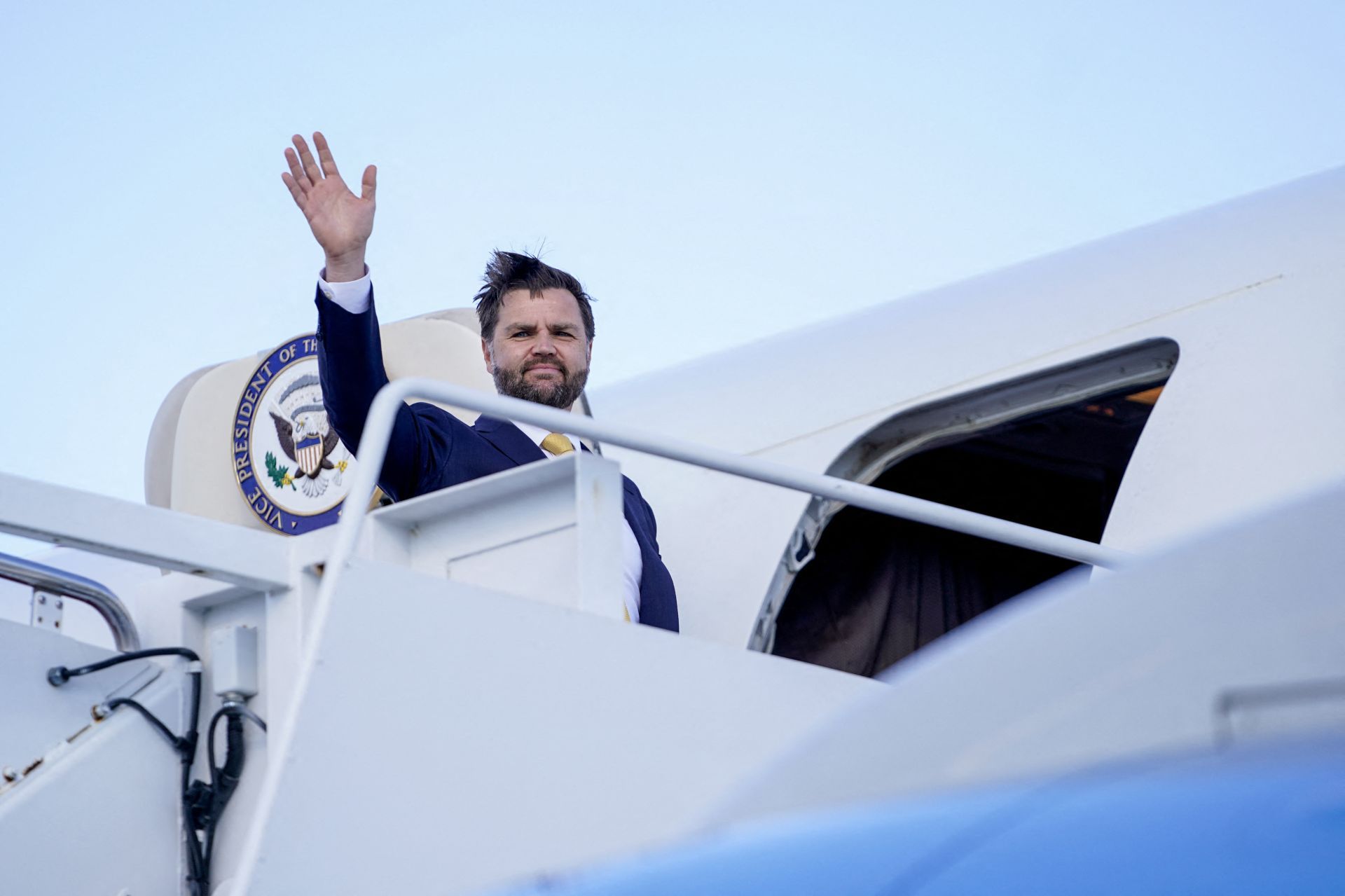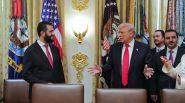- Home
- Middle East
- JD Vance in Israel: Washington Reasserts Control over the Ceasefire

©NATHAN HOWARD / POOL / AFP
After Donald Trump reiterated on Monday, October 20, his determination to enforce the fragile ceasefire that took effect ten days earlier—warning that he would “wipe out” Hamas if it failed to honor its commitments—US Vice President JD Vance traveled to Israel on Tuesday, October 21. The highly symbolic visit comes amid ongoing tensions around the Gaza Strip, despite the truce brokered under Washington’s auspices.
Vance’s trip is part of a broader American diplomatic push. Since Monday, special envoys Steve Witkoff and Jared Kushner have been holding a series of meetings with Prime Minister Benjamin Netanyahu. Together, they are working to secure an agreement designed not only to end hostilities, but also to lay the groundwork for a new regional security framework. President Trump said he wanted to give “one last chance” to peace, warning that if Hamas were to renege on the deal, the United States would back Israel in a full-scale response.
The ceasefire remains fragile. On Saturday, October 18, deadly clashes fueled fears that the agreement could collapse after an exchange of fire in eastern Gaza. The Israeli military said it had struck back in response to Hamas attacks, while the Islamist group denied any responsibility. The incidents, which left several Palestinian fighters and civilians dead along with two Israeli soldiers, underscored the truce’s ongoing fragility.
Trump’s Plan: Hamas Disarmament and a Security Guarantee
JD Vance arrived in Jerusalem with a clear message: US support for Israel’s security remains unwavering. His visit marks the first official trip by such a high-ranking American official since the ceasefire and aims to advance the second phase of Trump’s plan.
The plan calls not only for the continued gradual withdrawal of Israeli forces from Gaza but also for the complete disarmament of Hamas, the return of hostages’ remains and the establishment of a transitional administration supported by the United States, Israel, Egypt and the United Arab Emirates. The goal is clear: to prevent any terrorist infrastructure from taking root in the Gaza Strip again.
Accountability and the Return of Hostages
Beyond military considerations, JD Vance’s mission carries a deeply political and moral dimension. Over the course of the day, he is scheduled to meet with Benjamin Netanyahu, President Isaac Herzog and several families of Israeli hostages, both living and deceased.
The return of the bodies remains central to the negotiations: Israel has already recovered 13, but 15 remain unaccounted for. Netanyahu reiterated on X that there would be “no concessions” until all hostages, living or dead, are returned. Vance is expected to deliver this message, reflecting the US position that the fate of the hostages is a prerequisite for any political talks.
A Message of Firm Resolve and Ongoing Commitment
The Trump administration, determined to move beyond the ambiguities of previous diplomacy, is seeking to establish a new dynamic in the region. Its approach is pragmatic: Israel’s security is viewed as a prerequisite for any lasting reconstruction of Gaza. JD Vance, who has frequently criticized what he calls Western “complacency” toward Islamist terrorism, embodies this firm stance. His eagerly anticipated speech in Jerusalem is expected to reaffirm Israel’s right to self-defense while urging Hamas to make a decisive choice between political survival and armed confrontation.
For Benjamin Netanyahu, the US vice president’s visit offers a twofold opportunity: to reinforce Washington’s support and to signal to the international community that Israel remains committed to a genuine peace grounded in security and truth. In the streets of Tel Aviv and Jerusalem alike, JD Vance’s arrival is seen as a sign of strategic continuity between the two allies and a warning to anyone who might attempt to test Israeli-American resolve again.
In short, JD Vance’s visit underscores a simple truth: no agreement can succeed in the Middle East without resolve. By placing Israel’s defense at the heart of its diplomacy, Washington sends a clear and vital message: peace will not be built against Israel, but with it.
Read more



Comments